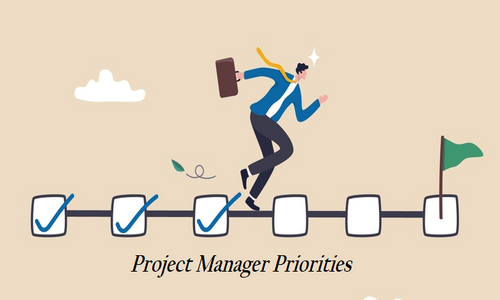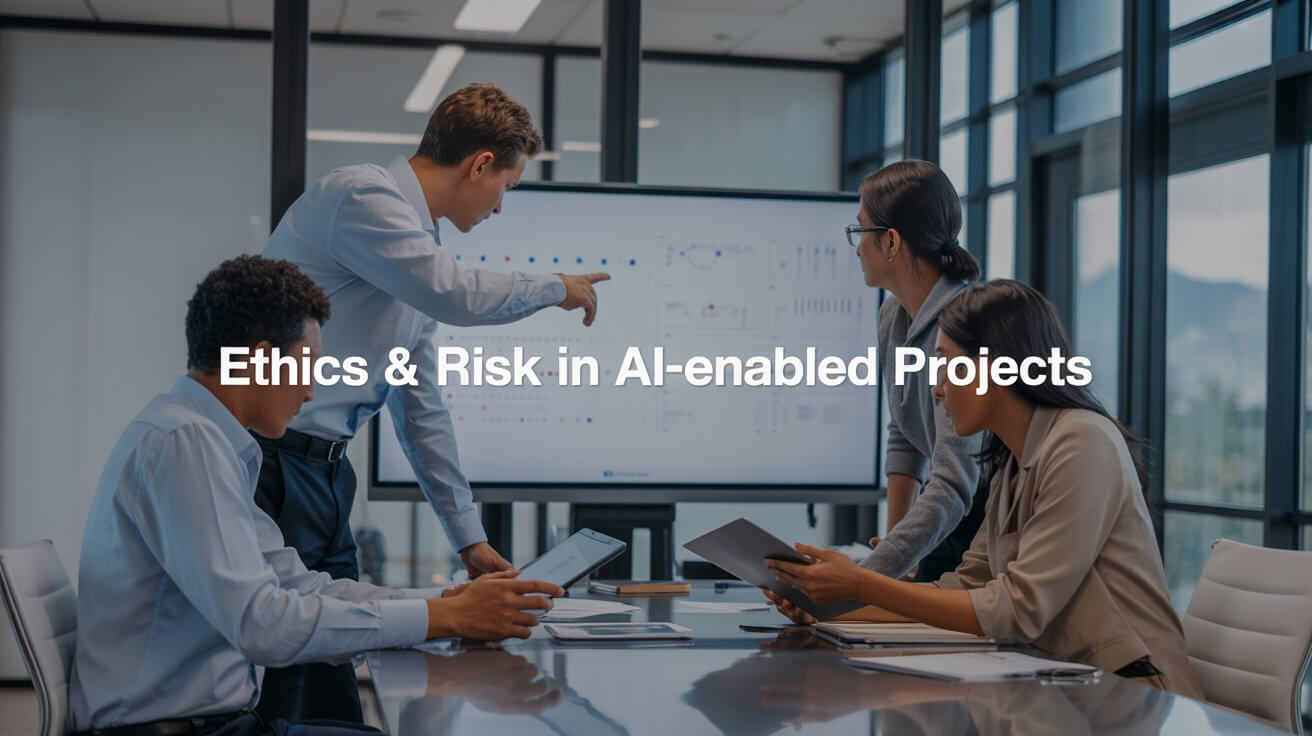A role of project manager in 2026 demands a diverse and evolving set of skills. However, some priorities remain consistent and at the core of effective project management. Focusing on clarity of vision and communication, risk mitigation, stakeholder management, and workstream integration is beneficial. Keeping an eye on industry trends and continuing to strengthen both hard and soft skills will help professionals stand out. The future may be hard to predict, but good project management is timeless.

Jump ahead to
Develop Soft Skills
To be an effective project manager, individuals must focus on developing critical soft skills.
- Communication is key. Strong written and verbal communication skills are essential for articulating the project vision, reporting progress, and managing stakeholders. Improve active listening, empathy, and emotional intelligence to understand others better.
- Relationship building and conflict management. Project managers depend on cooperation and teamwork. Make an effort to foster positive working relationships with all stakeholders. When conflicts arise, respond promptly and professionally to resolve issues. Look for compromise and common ground.
- Adaptability and problem-solving. Projects rarely go exactly as planned. Unexpected challenges, constraints, and setbacks are inevitable. Cultivate a flexible, solution-focused mindset to navigate changes. Think creatively about workarounds and alternatives. Stay optimistic in the face of difficulties.
- Leadership. Although project managers have limited formal authority, strong leadership skills are needed to motivate and guide teams. Set a positive example through your actions and behaviors. Empower team members by delegating responsibility and trusting them to do the job. Provide mentorship and help others develop their skills.
Adopt An Agile Mindset
Embracing an agile project management mindset is key to thriving as a project manager.
- Focus on outcomes over rigid plans. Have a vision but be willing to adjust how to get there based on feedback and learning.
- Value results from mindlessly following initial plans.
- Take an iterative approach, developing solutions over multiple cycles.
- Collect feedback and make improvements.
- Work closely with the agile team and stakeholders.
- Foster a collaborative environment where people feel empowered to contribute ideas.
- Communicate frequently to identify issues early.
- Reflect regularly on experiences and apply lessons learned.
- Encourage your team to do the same.
- Pursue continuous education and skill development to expand your capabilities.
Strengthen Cybersecurity Risk Management
With data breaches on the rise, it is crucial to implement policies and procedures to protect sensitive information.
Regular risk assessments
To effectively manage cyber risks, first, identify them. Conduct routine risk assessments of all systems and software used for projects and manage project risks. Analyze the likelihood and impact of potential threats like data theft, loss or corruption. Prioritize risks based on severity and determine appropriate controls.
Employee training
The team is the first line of defense for a project manager. Provide regular cybersecurity awareness training to ensure all staff understands best practices like strong password policies, phishing email detection, and data encryption. Stay up-to-date with the latest attack methods to equip employees with the knowledge to spot and report risks.
Incident response planning
Have an incident response plan in place in the event of a cyberattack. Work with your IT security team to determine how to contain the attack, eliminate the vulnerability and restore systems. Practice and drill your plan to enable a fast, effective response during an emergency.
Vendor management
If third-party vendors can access project data and systems, their security practices are a project manager’s responsibility. Conduct vendor risk assessments, require compliance with security policies, and obtain contractual agreements to share risk responsibility. Monitor vendor security continuously to avoid weak links in cyber defenses.
Manage Multiple Generations
A project manager is likely to be managing team members from multiple generations. Each generation has different work styles, communication preferences, and expectations. To effectively lead a multi-generational team, consider the following:
Adapt communication style
- Tailor how you share information based on each generation’s preferences, whether via email, chat, or in-person.
- Be transparent about goals and decisions to gain buy-in. Explain the reasoning behind them.
- Give constructive feedback regularly to each team member privately and supportively. Focus on their strengths and growth areas.
Different work styles
- Consider flexible schedules or remote work options for those who prefer them.
- Assign responsibilities that align with each team member’s strengths and work style. Delegate when possible.
- Encourage collaboration across generations to build understanding. Mentoring programs can facilitate this.
- Lead a multi-generational team requires patience, empathy, and adaptability. Focus on each generation’s strengths, values and priorities to motivate and support the team members.
- Promote an inclusive environment where all voices are heard and respected. You can achieve harmony and success by understanding what makes each generation tick.
To Sum Up:
Staying on top of emerging trends and honing key skills will be essential to the success and growth as a project manager. While technical abilities and methodologies remain crucial, soft skills like communication, leadership, and strategic thinking are becoming increasingly vital. Project managers who can anticipate challenges, pivot quickly, build strong relationships, and inspire teams will be poised to thrive. Though the role continues to expand in scope and complexity, a PMP Training course offers tremendous opportunities for impact and career advancement.
You may be interested to read – Top Priorities for Project Managers in 2024



